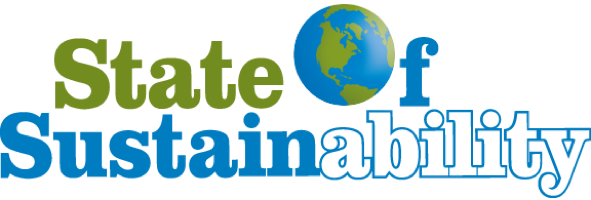
Will our state survive the next 100 years?
Every state is uniquely great. From coastlines to mountains to rolling prairies, our landscape is diverse. In this project, students will become aware of the need for a sustainable world by focusing directly on their own state’s sustainability. They will use their creativity to design a book about their state that informs readers how small changes can develop a more sustainable world. Finally, they’ll publish their book and sell it for a charitable cause.
Imagine if thousands of kids just like yours were able to promote sustainable practices and become agents of change. What an incredible force for good!
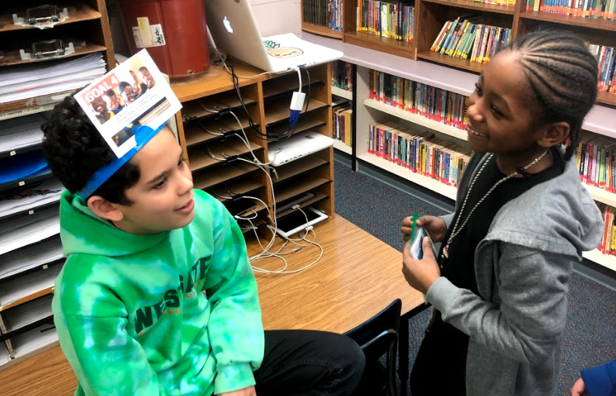
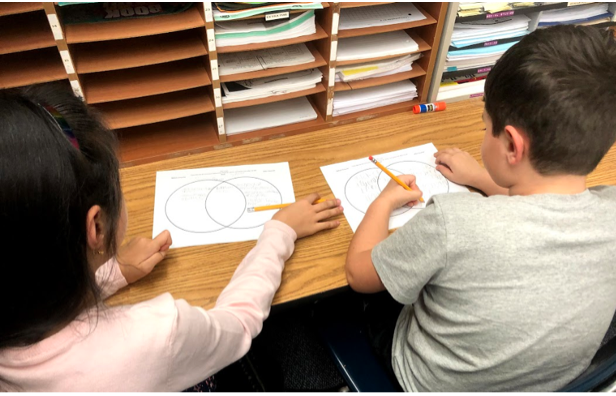
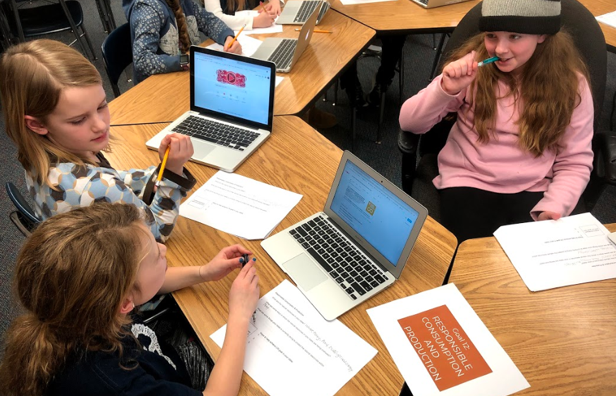
What’s included in your project?
Cross-Curricular Content
Every Blue Apple project provides suggested content correlations to Common Core State Standards, Next Generation Science Standards, and C3 Framework for Social Studies. A featured mini-lesson from each content area is highlighted below along with additional lesson ideas. Not teaching these standards? No problem! Check out the State of Sustainability K-8 content correlation document for additional lesson ideas.

Math
Number Patterns
Lesson 1: After the Fish On! Math Activity, explain to students that they are really following a complex number pattern. Their rule is essentially, “Take away x, then add half of whatever is left (rounding down if “half of what’s left” is a fraction.) Explore how math involves the study of patterns, and what they’re doing is some pretty awesome math! CCSS.MATH.CONTENT.4.OA.C.5Division & Remainders
Lesson 1: As students determine the number of fish on each subsequent day, they solve real-world problems and interpret remainders in an authentic context. CCSS.MATH.CONTENT.4.OA.A.3Fluent Multi-Digit Operations
Lesson 1: As students play the Fish On! Card Game with greater levels of skill, they will add and subtract multi-digit numbers. Doing so in gameplay makes the benefits of fluency seem natural! CCSS.MATH.CONTENT.4.NBT.B.4Division with Remainders
Lesson 1: As students play “Fish On!”, use the idea of remainders to discuss how to deal with the one lonely fish who does not have a pair. CCSS.MATH.CONTENT.4.NBT.B.6

English Language Arts
Theme
Lesson 2: After reading The Lorax, lead a discussion about the theme of the book, and explore the idea of theme in other familiar works of literature. CSS.ELA-LITERACY.RL.4.2Research
Lesson 4: As students research, they will integrate information from multiple sources in order to write knowledgeably on their topics. CCSS.ELA-LITERACY.RI.4.9Text Features
Lesson 6: As students craft their pages, they consider the structure of their concepts and organize them using common features of informational texts. CCSS.ELA-LITERACY.RI.4.5Writing Habits
All Lessons: Throughout the project, students develop good writing habits by responding to a variety of prompts. CCSS.ELA-LITERACY.W.4.10
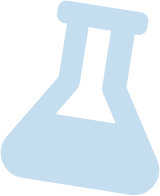
Science
Environmental Impact
Lesson 1: As students research potential sustainability solutions, help them consider the costs and benefits of different possibilities. Then, help students frame their findings by constructing a claim, evidence, and reasoning. NGSS 4-ESS3-2Animal Adaptations
Lesson 3: When discussing the UN Goals about Life on Land and Life below Water, relate to the idea that animals have adaptations to help them survive in their environment. Changes to that environment might negatively impact these animals. NGSS 4-LS1-1Renewable Energy
Lesson 4: As students conduct their research, encourage them to consider fuel sources and their impact on sustainability. NGSS 4-ESS3-1Comparing Multiple Solutions
Lesson 7: By working iteratively (making several attempts at their draft), students learn that design processes must be repeatedly refined. NGSS 3-5-ETS1-2

Social Studies
Taking Informed Action
Lesson 4: After students engage in open discussions about the UN Sustainable Development Goals, scaffold their discussions to include different strategies and approaches students and others can take to address local, regional, and global sustainability issues. NCSS D2.CIV.7.3-5Foundational Beliefs
Lesson 1: Prior to the reflection, talk with students about the importance of being accepting of others’ viewpoints on social issues. Guide students in recognizing that while others’ beliefs may be different than their own, they are just as valuable. This will be important as students go forward in this project. NCSS D2.CIV.10.3-5Public Policy
Lesson 3: After learning the UN Sustainable Development Goals, have a discussion on how policies are developed to address public problems. Pose this question, “Are there policies that we could develop that would significantly help reach these goals?” Have students discuss some policies that could be put in place to do so. NCSS D2.CIV.13.3-5Democratic Participation
All Lessons: Throughout this project, explain how a democracy relies on people’s responsible participation, and draw implications for how individuals should participate. NCSS D2.CIV.2.3-5

Social Emotional Learning
Responsible Decision-Making and Relationship Skills
Lesson 7: Explain that when working with others, it is important to make “constructive choices,” choices that have a useful purpose. Discuss how reactions to their partner’s work have consequences that will evoke either positive or negative feelings. Then, have them role-play peer-to-peer discussions so you can discuss the impact of different words on collaborative partnerships.
Not teaching these standards?
No problem! Check out the State of Sustainability K-8 content correlation document for additional lesson ideas.
Each Blue Apple Project Includes:

- Engaging lessons designed to make learning memorable, meaningful, and fun
- Curated online resources to save you time searching for content
- In-person, virtual, and hybrid options for all learning environments
- Cross-curricular mini-lessons in English-Language Arts, Math, Science, Social Studies, and Social-Emotional Learning
- Videos and contact info provided by real-world experts willing to meet with your students
- Opportunities to collaborate with other classrooms doing the same project
- Free project supplies to get you started right away


